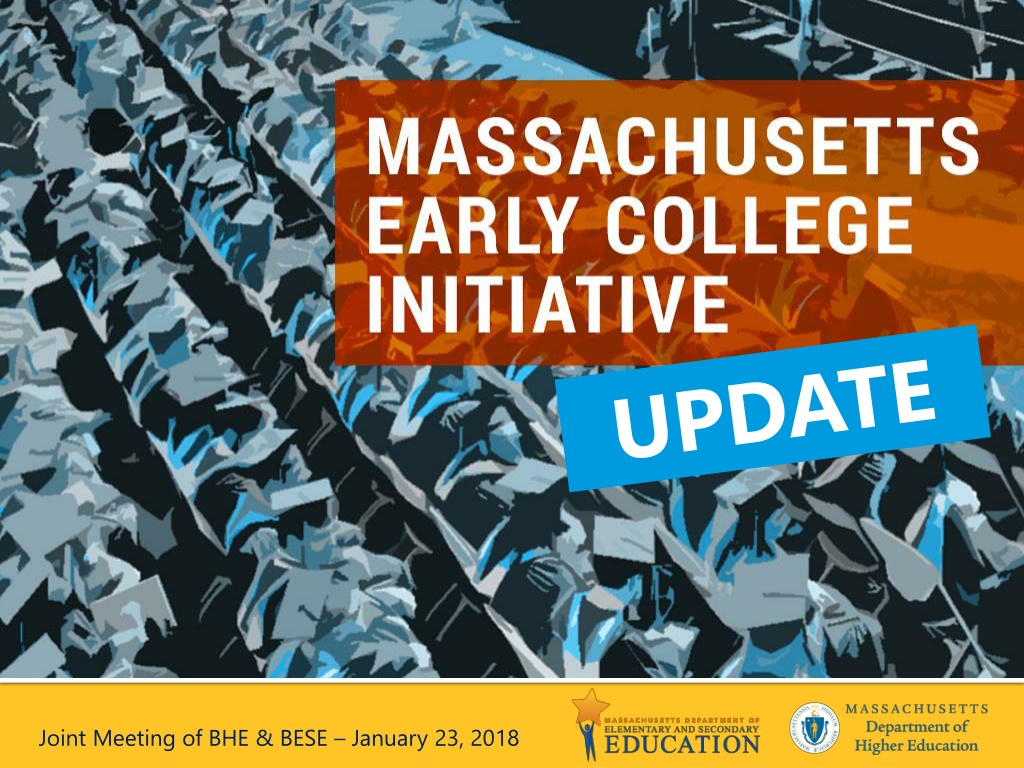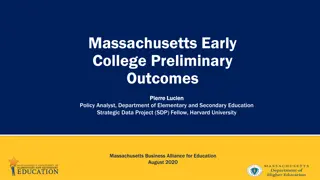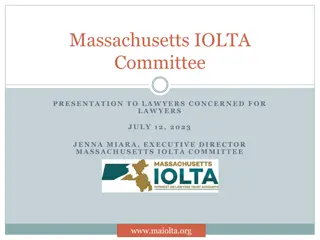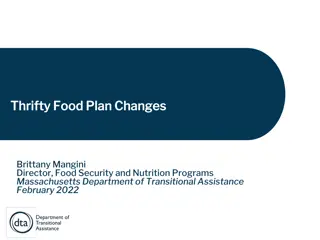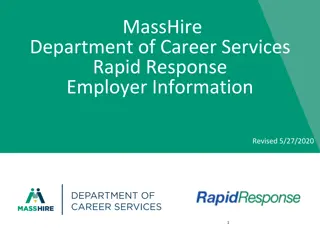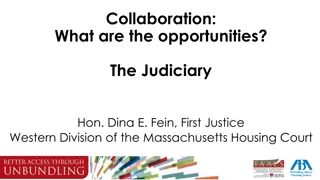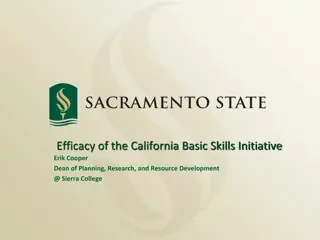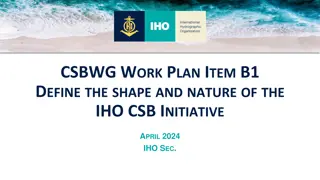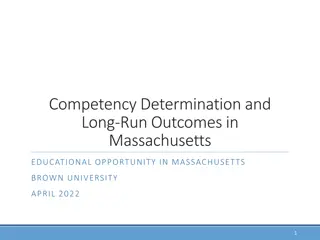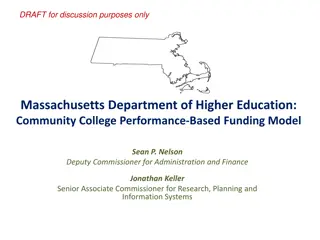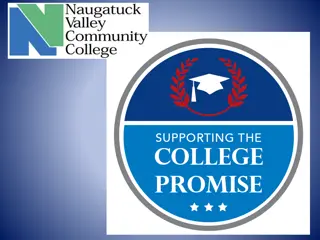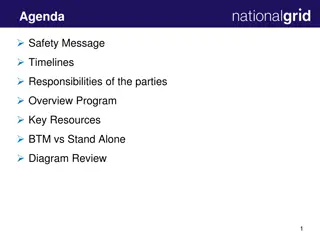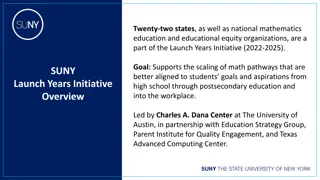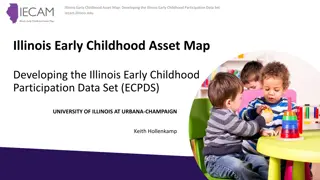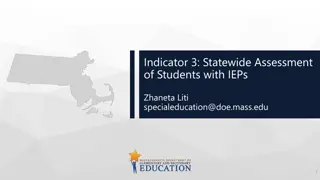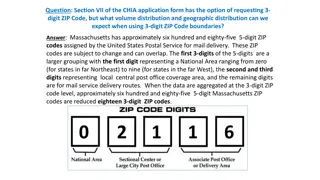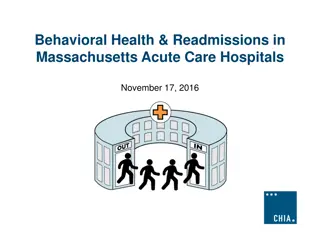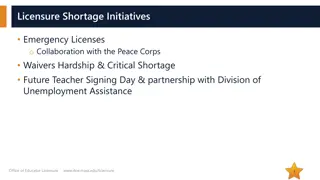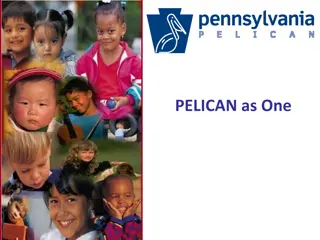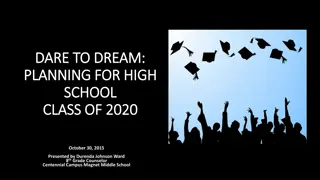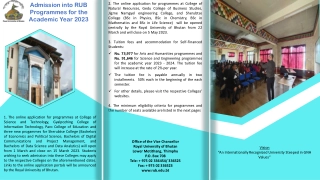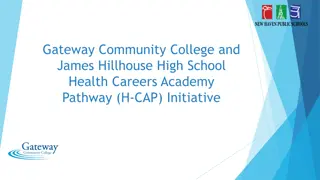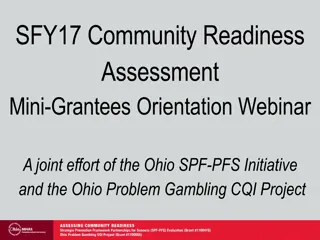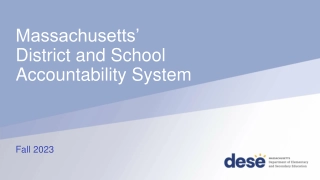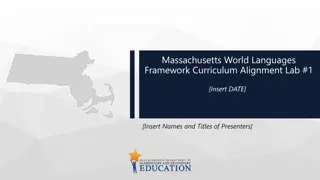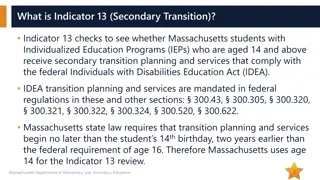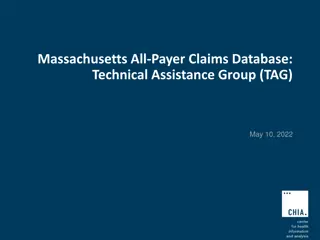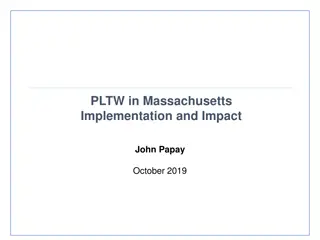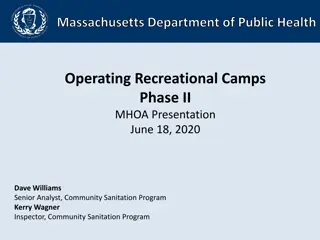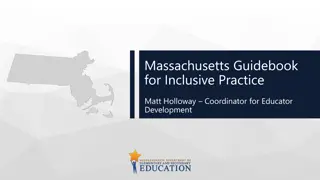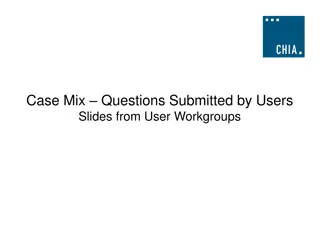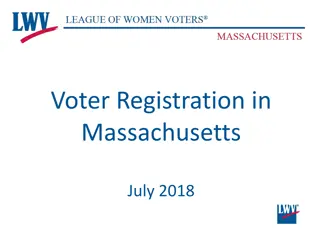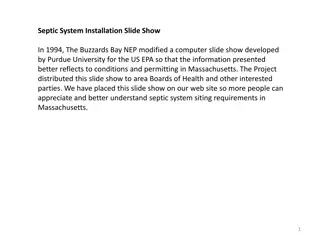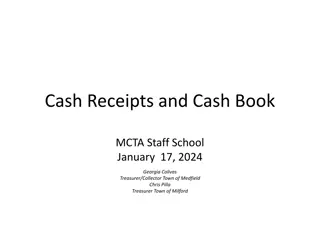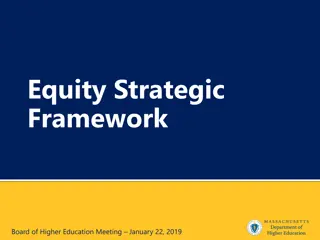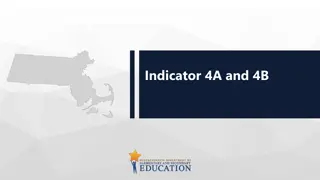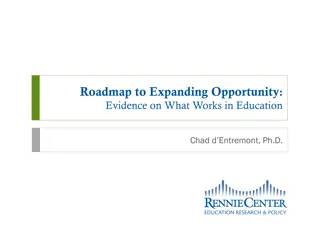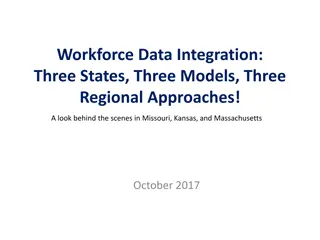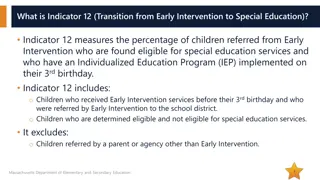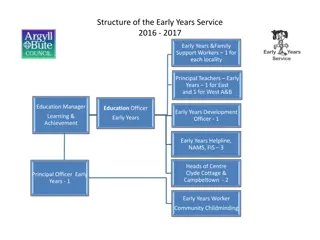Massachusetts Early College Initiative Overview
Massachusetts Early College Initiative aims to enhance student support, academic pathways, and career connections through a rigorous application process. The Joint Committee leads the initiative with a focus on equitable access and effective partnerships. Preliminary phase applications are reviewed by interagency teams, with successful applicants moving to the final phase for designation consideration.
Download Presentation

Please find below an Image/Link to download the presentation.
The content on the website is provided AS IS for your information and personal use only. It may not be sold, licensed, or shared on other websites without obtaining consent from the author. Download presentation by click this link. If you encounter any issues during the download, it is possible that the publisher has removed the file from their server.
E N D
Presentation Transcript
Massachusetts Early College Initiative Early College One Year Later Energy and engagement across campuses and districts Applicants represent most community colleges, several state universities, K-12 districts across the state 33 applicants in preliminary phase Rigorous criteria & application development process Robust application review & analysis 2
Massachusetts Early College Initiative Early College Joint Committee Designs, develops and coordinates the administration of a Massachusetts Early College initiative and designation process Includes five voting & two non-voting members Chair of BESE, Paul Sagan Chair of BHE, Chris Gabrieli Member of BESE appointed by Chair, Margaret McKenna Member of BHE appointed by Chair, Paul Toner Secretary of Education, Jim Peyser Interim Commissioner of DESE, Jeff Wulfson (non-voting) Commissioner of DHE, Carlos Santiago (non-voting) Staffed by agencies Working group comprised of staff across EOE, DHE and DESE Early College work is integrated with broader initiative to support High Quality College and Career Pathways 3
Massachusetts Early College Initiative Criteria and Application Process Criteria Framework Guiding Principles Equitable Access Guided Academic Pathways Enhanced Student Support Connection to Career Effective Partnerships ECJC approval in May, BHE/BESE approval in June Application process in two phases Preliminary phase applications due September 27, 2017, applicants notified in November 2017 Final phase applications due February 9, 2018 4
Massachusetts Early College Initiative Preliminary Phase Applications 33 applications Team-based application review Five 3-member teams (DHE, DESE, EOE) Review of 6-7 applications by each team Consensus scoring for each team based on uniform rubric Full group review and calibration Interagency leadership team review 21 successful applicants invited to submit an application for final phase of designation process 9 grantees receiving $10,000 planning grants 5
Massachusetts Early College Initiative Applicants Moving Forward Higher Education Partner(s) K-12 Partner(s) Bristol Community College Fall River Public Schools Bunker Hill Community College Charlestown High School (Boston Public Schools) Bunker Hill Community College Chelsea High School Fitchburg High School, Gardner High School, Leominster High School, Sizer School (North Central Charter Essential School) Framingham Public Schools Milford Public Schools Holyoke Public Schools Oliver Ames High School, Hanover High School, Middleborough High School, Norton High School, Randolph High School, Whitman-Hanson Regional High School New Heights Charter School of Brockton Fitchburg State University Mount Wachusett Community College Framingham State University Massachusetts Bay Community College Holyoke Community College Massasoit Community College Massasoit Community College Merrimack College Lawrence Public Schools Middlesex Community College Lowell High School (Lowell PS) Middlesex Community College Nashoba Valley Technical School 6
Massachusetts Early College Initiative Applicants Moving Forward Higher Education Partner(s) K-12 Partner(s) Mount Wachusett Community College Murdock High School North Shore Community College Lynn Public Schools Amesbury High School, Haverhill High School, Lawrence High School, Methuen High School, Pentucket Regional High School, Greater Lawrence Technical School, Whittier Regional Vocational Technical High School West Roxbury Academy (Boston PS) Northern Essex Community College Quincy College Quincy College, Bunker Hill Community College, Urban College, Holyoke Community College Quinsigamond Community College Marlborough Public Schools Quinsigamond Community College Worcester State University Roxbury Community College Bunker Hill Community College Salem State University Collaborative for Educational Services Worcester Public Schools Madison Park Technical Vocational High School (Boston Public Schools) Salem Public Schools Westfield State University Holyoke PS, Springfield PS, Westfield PS 7
Massachusetts Early College Initiative Applicant Technical Support 2 webinars offered prior to preliminary application deadline Direct email and phone support to applicants through process January calls with each applicant reviewing feedback from preliminary phase 2 webinar calls for open Q&A Continued communication with applicants Follow-up with applicants declined in preliminary phase 8
Massachusetts Early College Initiative Next Steps Successful applicants convened December 13, final application distributed Final phase applications due February 9 Competitive grant application appended to designation application, implementation funds from New Skills for Youth grant, at least 5 grants of up to $140,000 each Similar interagency review team across expertise Review by agency leadership Interviews with applicants for follow-up as needed Final review and approvals by ECJC, notifications of first designations by mid-April 9
Massachusetts Early College Initiative Continued Work Building community of practice among Designated Early College programs Technical support to programs in development Evaluation and refinement of process and feedback Analysis of funding needs and opportunities Development and refinement of performance measures and data collection Sharpening expertise and incorporation of learning and success in Massachusetts and nationally 10
